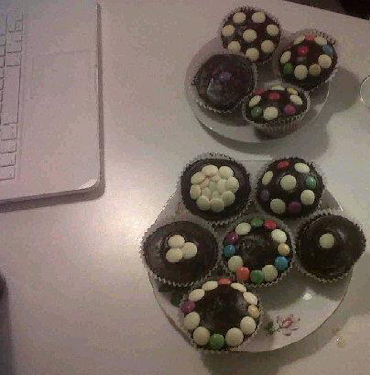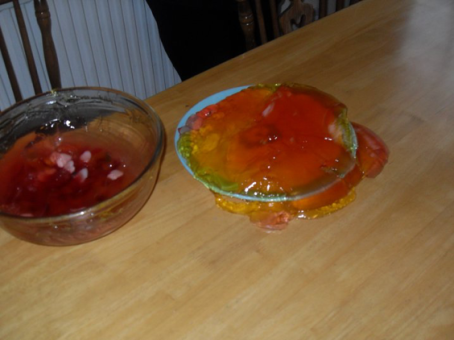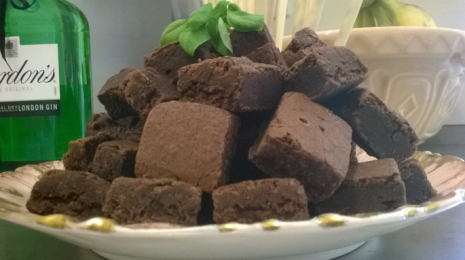Your Research. Your Life. Your Story.
A magnetic community of researchers bound by their stories
Every researcher has a story. What’s yours?
My PhD journey and the art of procrasti-baking

It’s summer 2012. I’m in my last undergraduate year and the pressure is mounting. Finals are approaching and we’ve all taken up residence in the central university library. My flatmate is living on takeaways and I can’t remember the last time I did any laundry. I’ve even seen one person asleep behind a set of shelves next to a half-eaten pizza. This is a pivotal moment in my academic life, although not in the way you might assume. Yes, these exams are important, but even more than this, this is the summer that saw me become a fully-fledged member of the Procrastinators Anonymous.
Yes, that’s right, I’m comfortable enough to admit it now.
I am a procrastinator.
“Ok, well, so what?” I imagine similar sentiments might be occurring to you right now. Maybe even, “well so am I.” I think it’s a rare breed of person that has never experienced the amazing (and often exceptionally creative) lengths we are sometimes capable of taking to avoid doing what we should actually be doing. For my part, I have honed expert procrastination skills over the years, but the most recent talent I’ve developed is that of procrastibaking. Biscuits, cakes, pies; when confronted with a deadline, I’ve made ‘em all. I’ve even indulged, once or twice, in what I like to call “experimental procrastibaking.” This is when you not only lack the correct ingredients to make that cake, tart or pastry, but you also lack the motivation to go out and buy those correct ingredients, so you mix a random assortment of items together and hope it all comes out ok. A defining moment on my experimental procrastibaking journey so far: not having eggs, butter or sugar in the cupboard and still feeling confident that I would be able to create an apple crumble.
A PROCRASTIBAKER’S JOURNEY… IN PICTURES

May 2012. A truly momentous day in the life of a procrastinator; the first results of an unintentional procrastibaking session (note the presence of my laptop, probably to try to suggest actual, real academic work is being done).

June 2012. I don’t remember too much about the events that lead to this photo being taken, but I imagine that this was an experimental procrastibaking session (maybe even the first one) as there is a distinct lack of baking having occurred here. Definitely 10/10 for presentation.

April 2015. Interestingly, my transition to Master's study also seems to have coincided with better procrastibaking effort all round. I’m quite proud of the uniformity of these brownies, although I’m not sure why I have put basil on the top. I’m also a bit concerned by the presence of the gin in this picture; I have a sneaking suspicion that I might have tried adding some to the mixture. I have no memory of making these brownies, so maybe that’s why.

June 2015 (thanks instagram!). How else do you deal with an impending linguistics thesis deadline? Ignore the library and make cookie monster cupcakes, of course!
In a classic PhD-style move, I have attempted to analyse why this particular choice of work avoidance has stuck with me longer than some other techniques. Probably unsurprisingly the “intensive kitchen-cleaning” habit I developed during my undergraduate finals didn’t last too long; definitely a good thing reflecting on the amount of cleaning fluids I used to use, and no doubt also to inhale, I have come to the conclusion that baking is, in some way, an attempt to assuage guilt about my lack of productivity by engaging in another activity which also has a final end product... albeit, one less likely to be accepted by an academic journal.
I’m sure the sense of culpability I describe above is not unfamiliar to many of you. Certainly, I would even go as far to suggest that the self-motivated nature of PhD study heightens these emotions. You can’t blame your colleagues, manager or company software for a day of unproductivity. And that is often a very guilt-inducing state of mind to find yourself in.
But here’s where I’d like to go a little bit rogue. I think a healthy dose of procrastination (every once in a while) is actually good for us. I believe we should all learn to embrace our inner procrastibakers (or procrastinetflixers, or procrasticleaners, whatever the avenue of choice), and here’s why:
- Procrastination is part of the creative process
How often have you sat down at a desk to finally attempt that essay/dissertation/analysis, fearful after what’s felt like a decade of avoidance only to find that, in fact, you have the answer already ripe, juicy and ready to pick at the front of your mind? Even though we often might feel that not directly addressing the task at the top of our “to do” list means that we are ignoring it completely, I often find that I have actually been subconsciously mulling it over the whole time. Often, inspiration strikes at moments when you are as far as you could be from your laptop; running along the Cam, browsing through the free-from aisle in Sainsbury’s; or doing the dishes on a Saturday morning. I believe that taking the time (whether it’s intentional or not) to just reflect on the question that you need to solve is one of the most valuable things we can do during our PhDs. Throughout this process, you’re not only addressing the issue at hand, but, more often than not quietly considering the how and the whys of what you’re doing. As researchers, I think being mindful and evaluative in this way is incredibly useful, and to the ultimate strength of the work that we are doing. Just getting on with life, with the question as background noise (at least for me) has often yielded some interesting insights I might not have otherwise stumbled upon.
- Research says so!
If you are an active procrastinator (that is to say, one who procrastinates by doing other things, rather than just sitting on the sofa, passively procrastinating), it’s often the case that you’ll be ticking off all the other jobs on your list in an attempt to avoid doing the task at the top that you’ve underlined with three different colours. Indeed, psychology researchers Chu and Choi (2005) argue that, in fact, active procrastinators are more similar to people who do not procrastinate than fully passive, inactive procrastinators in terms of self-efficacy, purposive use of time and academic performance. Indeed, they suggest that active procrastination should be seen as a particular strategy of work employed by individuals who work best under pressure.
Procrastination can be helpful in other ways, too. Wait: The Art and Science of Delay, a book published in 2012 by Frank Partnoy, a finance professor at the University of San Diego, claims that we should wait until the last possible moment before making a decision. He suggests that successfully “managing delay” leads to better decision making, and by extension, a happier life. He argues that mindful procrastination is actually a state of reflective being we should all try to cultivate.
Of course, I am not suggesting that we embrace our inner-avoiders and leave ALL our tasks to the last possible minute. However, I do believe that occasional, healthy procrastination is to the strength of our academic work, permitting us the chance to reflect, re-engage with our subjects and to subconsciously explore other pathways. I hope that a better understanding of why we sometimes really do need to do this might help alleviate some of the guilt that often goes hand-in-hand with a day of achieving less than you hoped for. In the words of Frank Partnoy, the question is not whether you do or do not procrastinate (because we all do!), it’s whether you procrastinate well.
References
- Chu, A. & Choi, J. (2005). “Rethinking Procrastination: Positive Effects of “Active” Procrastination Behaviour on Attitudes and Performance”. Journal of Social Psychology. 145 (3), 245-264.
- Partnoy, F. (2012). Wait: The Art & Science of Delay. Profile: London.
Harper Staples (@HarperStaples) is a third year PhD student at the Faculty of Education, University of Cambridge. This story was first published on January 28, 2019, on the FERSA Blog run by graduate students at the Faculty of Education in Cambridge (available here) and has been republished here with permission.

Comments
You're looking to give wings to your academic career and publication journey. We like that!
Why don't we give you complete access! Create a free account and get unlimited access to all resources & a vibrant researcher community.

Your Research. Your Life. Your Story.
A magnetic community of researchers bound by their stories





